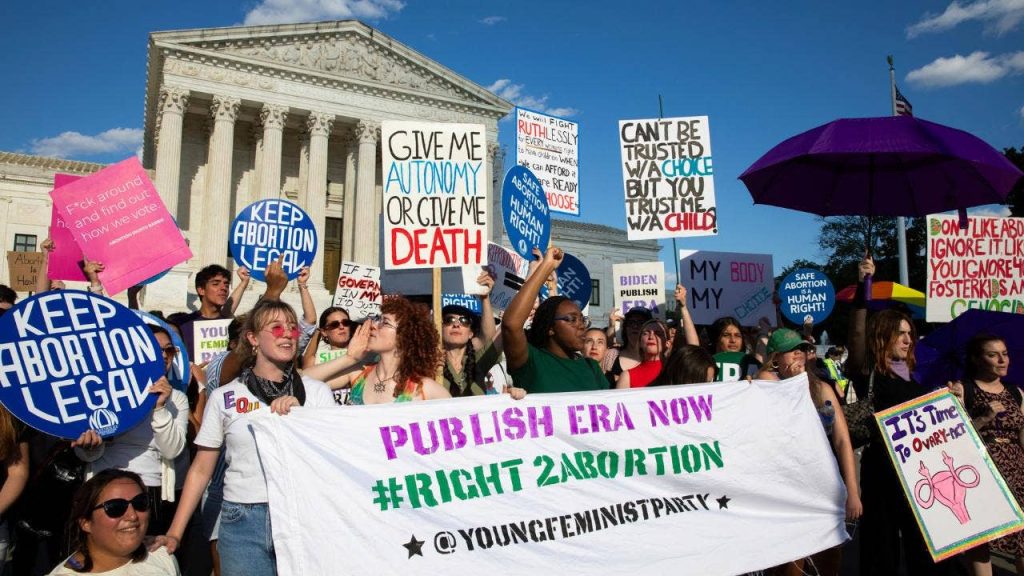Recent analysis from the Guttmacher Institute suggests that states should reconsider their mandated abortion reporting requirements due to the potential risks associated with these policies. In light of the current political climate, particularly following the Supreme Court’s decision to overturn Roe v. Wade, the report indicates that the advantages of mandatory abortion data collection are being overshadowed by emerging threats to women’s health privacy. In response, pro-life advocates argue that such actions could hinder efforts to protect the unborn, emphasizing the need for robust data to inform legislation.
| Article Subheadings |
|---|
| 1) The Guttmacher Institute’s Position on Reporting |
| 2) Opposition from Pro-Life Advocates |
| 3) The Importance of Abortion Data Collection |
| 4) Voluntary Reporting Recommendations |
| 5) Broader Political Context and Implications |
The Guttmacher Institute’s Position on Reporting
The Guttmacher Institute, a prominent research entity focused on reproductive health, has recently published a policy analysis arguing for a reevaluation of state-mandated abortion reporting requirements. According to their findings, the inherent risks associated with these mandates now surpass the benefits they were originally intended to provide. The report highlights a shift in the political landscape, especially with certain states potentially using the data collected to undermine abortion rights further. The Guttmacher researchers advocate for a comprehensive look at how data collection practices can evolve to better protect individuals seeking reproductive care while still providing useful statistics for public health assessment.
Opposition from Pro-Life Advocates
In stark contrast to the Guttmacher Institute’s recommendations, pro-life advocates express strong opposition to any reduction in mandated abortion reporting requirements. Mia Steupert, a research associate at the Charlotte Lozier Institute, a pro-life research organization, articulated that rolling back such requirements would restrain efforts to protect the unborn. She emphasized that following the Dobbs ruling, which returned authority to states to enact abortion laws, having reliable data is vital for evaluating the effectiveness of these regulations. Pro-life groups argue that data can provide critical insights into the effects of different abortion policies on women and society as a whole.
The Importance of Abortion Data Collection
Data collection on abortion is a standard practice that varies across states. Typically, the information includes the number of abortions performed, the demographics of the individuals seeking care, and the medical facilities involved. The Centers for Disease Control and Prevention (CDC) compiles this data to track national trends in abortion rates. Currently, most states mandate some level of reporting, yet there are exceptions. In states that do not require reporting, the lack of data can lead to a distorted understanding of abortion prevalence and may leave significant gaps in public health strategies. Advocates for data collection assert that comprehensive reports are essential for addressing unintended pregnancies and improving healthcare practices.
Voluntary Reporting Recommendations
Although the Guttmacher Institute suggests rethinking mandatory reporting, they do not call for the complete abandonment of data collection. Instead, they propose that states consider shifting to a voluntary data collection model. This change would maintain the flow of information necessary for public policy without imposing perceived burdens or threats to patient privacy. A spokesperson for the Guttmacher Institute clarified that this approach aims to enhance data quality and ensure the safety of those involved in the abortion process, protecting both patients and healthcare providers from intrusive reporting mandates.
Broader Political Context and Implications
The discussion surrounding abortion reporting requirements is deeply interwoven with the political climate following the Supreme Court’s decision to overturn Roe v. Wade. This landmark ruling has led to various states enacting tighter regulations on abortion access. Consequently, the establishment of data mandates can play a significant role in shaping the political narrative surrounding abortion. The Guttmacher Institute’s recommendations emerge at a time when some policymakers are doubling down on restrictive practices that may further jeopardize women’s access to critical healthcare services. The report underscores the need for a balanced approach where data collection serves public health interests without being weaponized against those seeking reproductive care.
| No. | Key Points |
|---|---|
| 1 | The Guttmacher Institute recommends states to reassess abortion reporting mandates. |
| 2 | Pro-life advocates argue against reducing abortion reporting requirements. |
| 3 | Accurate abortion data is crucial for public health and policy evaluation. |
| 4 | Voluntary reporting could balance data needs with patient privacy concerns. |
| 5 | Political implications of abortion data highlight the need for informed policymaking. |
Summary
The ongoing debate surrounding abortion reporting requirements exemplifies the tension between public health data needs and the safeguarding of individual privacy rights. As the Guttmacher Institute advocates for a reassessment of mandatory reporting, pro-life activists raise concerns over the implications for unborn child protection measures. Through careful examination of these reporting practices, states can strike a balance that enhances data integrity while respecting the autonomy of individuals seeking care. This dialogue reflects the broader challenges within the current political landscape regarding reproductive rights and healthcare access.
Frequently Asked Questions
Question: What does the Guttmacher Institute recommend about abortion reporting?
The Guttmacher Institute recommends that states reconsider their mandated abortion reporting requirements, arguing that the risks now outweigh the benefits, and suggests transitioning to a voluntary data collection model instead.
Question: Why do pro-life advocates oppose the rollback of reporting requirements?
Pro-life advocates believe that maintaining state-mandated reporting is essential for evaluating the impacts of abortion policies to aid in the protection of unborn children.
Question: How does data collection impact public health policy?
Accurate data collection on abortion is critical for tracking trends in reproductive health, informing public health strategies, and evaluating the effectiveness of current laws and practices related to abortion.


